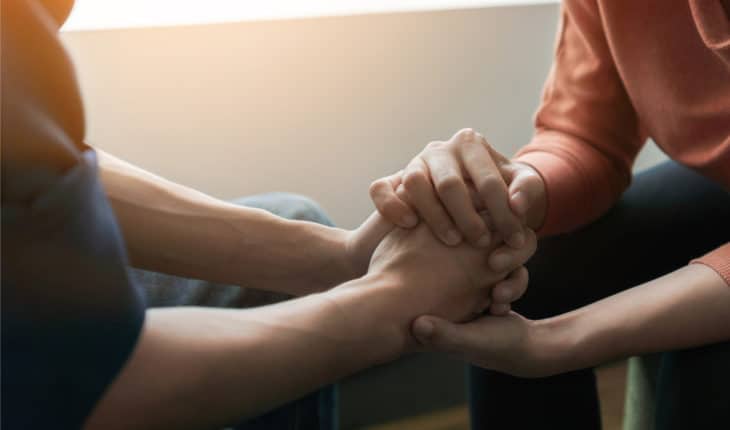Analysis of over 2,300 British Indians living in the United Kingdom found that 76% of respondents have experienced challenges in accessing mental health services, with many citing inappropriate treatment for their culture as one of the main blockades.
Under review by the NHS Birmingham & Solihull Mental Health Trust Patient and Carers Race Equality Framework (PCREF), the new report, Improving Access to Mental Healthcare for British Indians, published today by the 1928 Institute – a University of Oxford backed think-tank focused on researching and representing the challenges, concerns and opportunities of the British Indian community – has been commissioned to improve Black, Asian and minority ethnic community experiences of mental health services, and aims to inform a national organisational competency framework tool for NHS Mental Health Trusts.
Barriers to mental health services
As more people in the UK face hardship due to the rising cost of living, or the impact of the pandemic, the mental toll on communities can become overwhelming, resulting in one in four seeking support from mental health professional.
British Indians have been found to be at higher risk of needing access to mental health support. However, the diaspora has reported barriers when accessing services.
A third (34%) of respondents have cited the associated stigma of accessing support as the biggest barrier; with many believing that it will be perceived negatively by the wider community; while a further 16% stated that the quality of care was their biggest concern, rising to 50% for Scottish respondents, and not being able to see a culturally relevant professional was highlighted by a tenth (9%) of all respondents.
Whilst many of these barriers can be addressed at the community level, there is a clear call from British Indians that more needs to be done to remove the negative connotations of access to services. Almost all respondents (93%) highlighted the urgent need for safe spaces to discuss mental health awareness in a culturally sensitive manner; while 16% would feel more comfortable in exploring services if the quality of care was tailored toward the culture and beliefs.
Kiran Kaur Manku, Co-Founder of the 1928 Institute and Researcher Fellow at the University of Oxford, said: “Our experiences, and those of our families shape our lives, and many, British Indians have witnessed traumatic and culturally significant geopolitical events.
“These events have prompted the majority of our respondents to call for a greater understanding of the cultural nuances they have been through. With the upcoming 75th anniversary of Partition and 50th anniversary of the expulsion of Indians from east Africa, this year is expected to be challenging for many. As those memories reignite, many will be reliving traumatic events or reflecting on the impact of an uncontrollable force of social injustice – it is critical that these issues are understood and addressed in a timely manner.”
The role of front-line NHS staff
Analysis of access to services found that 86% faced discrimination from their GP, or other professional, while 81% experienced shame and stigma. In addition, 92% reported that GP appointments are too short to successfully diagnose the need for mental health support, with 94% perceiving that services are only available to those who can clearly articulate the need. Concerningly, 60% reported that healthcare professionals assumed that a ‘family support network’ would be available to meet a British Indian’s needs.
When asked about the quality of care, respondents overwhelming outlined negative experiences, and called for a willingness from the professional to learn about their patient’s culture, key moments in history, or cultural nuance. In addition, 48% would like to see more therapists learning from their peers; and 97% want to see a well-rounded treatment plan, which included traditional practices to aid wellbeing.
Respondents have called for public health officials and community leaders to support the diaspora in breaking down the barriers identified; 87% highlighted the need for increased community outreach in educational and employment settings whilst 53% discussed the need for outreach in community centres, and places of worship.
Kiran Kaur Manku adds: “Our data has found that more work needs to be done to address the needs of the British Indian diaspora, not just access and clinical NHS treatment, but also in promoting community engagement to explore multi-dimensional approaches of mental health. It is vital that individuals can openly discuss mental health challenges without discrimination, stigma, or shame.
“NHS teams across the country have done a fantastic job, working tirelessly to help so many, but the South Asian diaspora are feeling left behind. However, a one-size fits all approach will not work. A collaborative effort between policy makers, healthcare professionals and communities is required to drive meaningful change, and shape the future of the UK’s mental health care system which is inclusive, not just for British Indians, but for all races and ethnicities.”
- Gut microbiome could delay onset of type 1 diabetes - 3rd April 2025
- The da Vinci 5 Robot Is Set To Transform Bariatric Care: - 31st March 2025
- Beyond money: the hidden drivers fuelling child food insecurity - 31st March 2025






